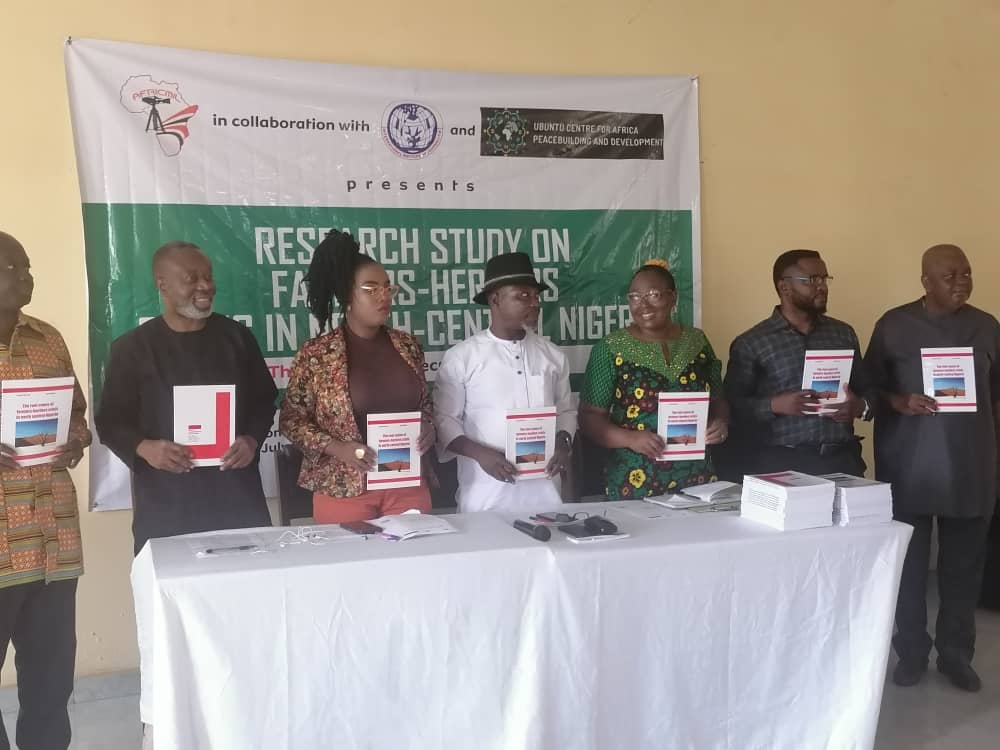
Women and children have been identified as the most vulnerable groups during every form of crisis including the farmer herders crisis currently rocking some parts of northern Nigeria.
[ad]
This was the focus of the discussion at the launch of a research study on the farmers-herders crisis in north-central Nigeria with the theme ‘peace, security and gender’ by the African Centre for Media and literacy (AFRICMIL) in Abuja.
AFRICMIL is a non-governmental organization whose vision is to promote media and information literacy as a key component in the enhancement of democracy, good governance, and the promotion of accountability and an orderly society.
In her presentation, Mojirayo Ogunlana-Nkanga, the guest speaker, said women continue to experience the highest levels of gender violence and inequality that cannot match the physical strength of male violators, who do not hesitate to plunder and destroy with pleasure.
She also said women and girls get raped on the farm during crisis with the attendant outcome of shame; stigma adding that some women are rejected by the family and the community after the traumatic incident.
According to her “as these criminal events continue to unfold and remain unabated, there is not a doubt that women and girls are at a disadvantage in the confrontations, mostly because they are unarmed and dependents of the male farmers who lose their lives in the conflict.
[ad]
“Where a woman has undergone rape or loss of their breadwinner, they move away from that community and in a lot of cases into Internally Displaced Persons’ (IDP) camps, where it has been sufficiently reported that women and girls continue to experience all manner of abuses from the male occupants in the IDP camps and men outside these camps.
“It has been reported that teenage and underage girls are daily abused and exploited in IDP camps but rarely will they speak out about it in order to protect their dignity. These outlandish situations not only leave women and girls to suffer physically but also compel them to suffer emotional and psychological violence without access to therapy or psychosocial support.”
Nkanga urged governments at all levels to set up 24hrs free psychosocial support centers with toll-free hotlines to encourage access for women who have undergone these traumatic experiences. “The government needs to also work hand in hand with the women affairs ministry and commissions and women based civil society organizations operating in the north-central region to empower women and girls survivors”, she added.
Earlier in his welcome address, coordinator, AFRICMIL, Dr Chido Onumah said farmers and herder’s crisis has become one of the leading causes of loss of lives and properties due to lack of objectivity, careful observation and proper understanding of issues.
He further said that this research work speaks to concepts such as good governance, orderliness, justice, and peaceful co-existence.
[ad unit=2]



